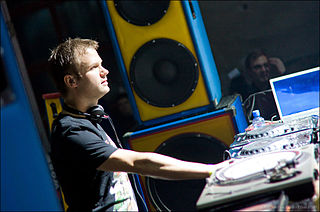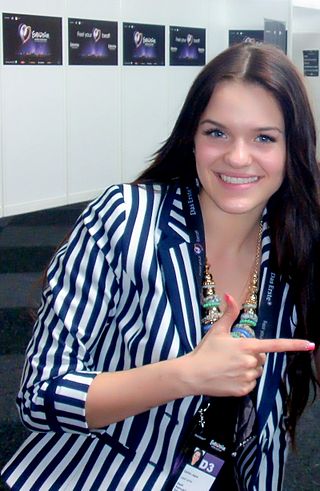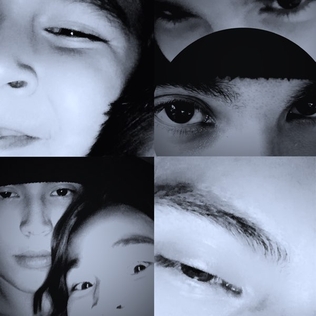Related Research Articles

Tijs Michiel Verwest, known professionally as Tiësto, is a Dutch DJ and music producer. He was voted "The Greatest DJ of All Time" by Mix magazine in a 2010/2011 poll amongst fans. In 2013, he was voted by DJ Mag readers as the "best DJ of the last 20 years". He is also regarded as the "Godfather of EDM" by many sources.

Remix culture, also known as read-write culture, is a term describing a culture that allows and encourages the creation of derivative works by combining or editing existing materials. Remix cultures are permissive of efforts to improve upon, change, integrate, or otherwise remix the work of other creators. While combining elements has always been a common practice of artists of all domains throughout human history, the growth of exclusive copyright restrictions in the last several decades limits this practice more and more by the legal chilling effect. In reaction, Harvard law professor Lawrence Lessig, who considers remixing a desirable concept for human creativity, has worked since the early 2000s on a transfer of the remixing concept into the digital age. Lessig founded the Creative Commons in 2001, which released a variety of licenses as tools to promote remix culture, as remixing is legally hindered by the default exclusive copyright regime applied on intellectual property. The remix culture for cultural works is related to and inspired by the earlier Free and open-source software for software movement, which encourages the reuse and remixing of software works.
Chopped and screwed is a music genre and technique of remixing music that involves slowing down the tempo and DJing. It was developed in the Houston hip hop scene in the early 1990s by DJ Screw. The screwed technique involves slowing the tempo of a song down to 60 and 70 quarter-note beats per minute and applying techniques such as skipping beats, record scratching, stop-time and affecting portions of the original composition to create a "chopped-up" version of the song.

"Moskau" is the second single by German Eurodisco group Dschinghis Khan released in 1979.
Prezioso & Marvin is an Italo dance trio group founded in 1999 and made up of brothers Andrea and Giorgio Prezioso in addition to Alessandro Moschini, known as Marvin. Prior to 1999, and starting from 1993, the brothers Andrea and Giorgio Prezioso were known as the duo Prezioso. With Giorgio Prezioso taking a hiatus in 2007 to move to his own project Giorgio Prezioso & Libex, Prezioso & Marvin became a duo. But Giorgio returned to the formation in 2009.
Tiffany "Tiff" Lacey is an English trance and electronic dance music (EDM) vocal singer, songwriter, author, and painter. She is the vocalist on several electronic music singles. Best known for her international singles with German producer André Tanneberger and for her work with British producer Don Jackson, Matt Darey, and Cosmic Gate. Lacey is the performer with the highest number of officially released collaborations within the EDM genres so far.

"Lucky" is a song by Swedish pop duo, Lucky Twice. The song was released as the lead single of the duo first and only studio album Young & Clever on July 6, 2006. The song was first released in Spain, where it reached number one on the singles chart, and has performed strongly in other European countries, the only Lucky Twice song to do so.

"Caramelldansen" is the first track from Swedish music group Caramell's second and final album Supergott released on 16 November 2001. It became an Internet meme in the mid-2000s after a sped-up version of the song was attached to a video loop from the Japanese anime Popotan, which went viral. This version of the song was officially released in 2006 in Sweden and Japan as "U-u-uma uma", the latter of which charted on Oricon. A virtual group called Caramella Girls was launched to promote the song, renditions in other languages, and other cover songs and original songs.

Dash Berlin is a Dutch electronic music group started in 2007 in The Hague by Eelke Kalberg and Sebastiaan Molijn. Dash Berlin were voted the seventh most popular DJs in the world according to DJ Mag in 2012; Kalberg and Molijn were record producers. Kalberg and Molijn left the group in 2019 and returned in 2021 after winning a legal dispute against Jeffrey Sutorius over the "Dash Berlin" trademark. Since 2022 Ryan Fieret is the frontman of the group.

Getter Jaani is an Estonian singer and actress. She represented Estonia in the Eurovision Song Contest 2011 with the song "Rockefeller Street".

W&W is a Dutch DJ and record production duo composed of Willem van Hanegem Jr. and Wardt van der Harst. They began their careers by producing trance music, before venturing into big room house and other forms of EDM.

"It's a Wrap" is a song recorded by American singer and songwriter Mariah Carey for her twelfth studio album Memoirs of an Imperfect Angel (2009). It is a doo wop-inflected R&B breakup song with minimal instrumentation and features lyrics about dismissing a lover. The track samples "I Belong to You" by Love Unlimited, whose writer Barry White is credited on "It's a Wrap" along with Carey. She produced it with Heatmyzer and previous collaborators Christopher "Tricky" Stewart and James "Big Jim" Wright. A remix features additional vocals by American singer Mary J. Blige.
Georgia Lee Twinn is an English musician and social media personality. Born and raised in Essex, she first attracted attention for her 2018 lip-synching video to iLoveFriday's "Mia Khalifa". After releasing "On My Mind" in 2019, she signed to Universal Music Group, and released several works between October 2020 and May 2021 including "I Don't Mind", which was nominated for the Popjustice £20 Music Prize. In 2022, she became a member of Loud LDN.

"Mia Khalifa" (originally titled "Mia Khalifa (Diss)", also known as "Hit or Miss", and sometimes stylized as "MiA KHALiFA") is a song by American hip hop group iLoveFriday (stylized as iLOVEFRiDAY). The duo of Atlanta-based rappers Aqsa Malik (also known as Smoke Hijabi) and Xeno Carr self-released the song on February 12, 2018, which was later re-released by Records Co and Columbia Records on December 14, 2018. It was included on their second EP, Mood (2019). The song was produced by Carr. The song is a diss track targeting Mia Khalifa, a Lebanese-American Internet celebrity and former pornographic actress. The decision to write a song dissing Khalifa arose over a misunderstanding. A faked screenshot, intended as a joke, seemed to show Khalifa, who once appeared in a pornographic film wearing a hijab, criticizing Malik for smoking while wearing a hijab in a music video. iLoveFriday thought the screenshot was legitimate.

Dancing Pallbearers, also known by a variety of names, including Dancing Coffin, Coffin Dancers, Coffin Dance Meme, or simply Coffin Dance, is the informal name given to a group of pallbearers from Nana Otafrija Pallbearing and Waiting Service who are based in the coastal town of Prampram in the Greater Accra Region of southern Ghana, although they perform across the country as well as outside Ghana. The founder and leader of the group is Benjamin Aidoo. Locally, they are referred to as Dada awu.
Hyperpop is a loosely defined electronic music movement and microgenre that predominantly originated in the United Kingdom during the early 2010s. It is characterised by a maximalist or exaggerated take on popular music, and typically integrates pop and avant-garde sensibilities while drawing on elements commonly found in electronic, hip hop, and dance music.
Budots is an electronic dance music (EDM) genre that originated in Davao City, Philippines, and is considered as street style techno. It eventually spread in Bisaya-speaking regions. Based on techno and house music with Sama-Bajau tangonggo rhythms, it is regarded as the first "Filipino-fied" electronic music, characterized by its aggressive percussion, heavy use of sampling, off-beat basslines, high-pitched "tiw ti-ti-tiw" whistle hooks, and organic noises that surround the city. It is created to complement a form of freestyle street dance that bears the same name.
"Need 2" is a song recorded by the American rock band Pinegrove. The song was first released on May 29, 2014, and later re-released as a single on June 15, 2023.

"Wasted Summers" is a song by American singer Juju <3. It was released on July 12, 2023, as a standalone single through Not Fit for Society. The song features vocals by his 10-year-old sister Lailah and was produced by Dan Darmawan. It went viral on TikTok and topped Spotify's Viral 50 US chart. A visualizer was released for the song in September 2023. The official music video premiered on January 26, 2024.
References
- 1 2 Murray, Conor (Jan 18, 2023). "Why Sped-Up Music—From SZA, Steve Lacy And Many More—Took Over TikTok And Became A Key Marketing Strategy". Forbes .
- ↑ Mullen, Matt (Jan 25, 2023). "Why are artists releasing sped-up versions of their songs?". MusicRadar .
- ↑ Demopoulos, Alaina (Jan 10, 2023). "Why is Spotify full of faster versions of pop hits? Let's bring you up to speed". The Guardian .
- 1 2 3 George, Cassidy (June 20, 2023). "TikTok Is Filled With Sped-Up Remixes. Two Norwegians Pioneered Them". New York Times.
- ↑ "!: Nightcore is Hardcore :!: biography". Archived from the original on 2007-09-02. Retrieved 2016-10-03.
- ↑ "NIGHTCORE INTERVIEW | SUPERSUPER! Magazine". SUPERSUPER! Magazine. Archived from the original on 2012-07-28. Retrieved 2016-10-03.
- 1 2 3 4 5 6 7 8 9 Fan Fiction (August 7, 2015). "Nest HQ's Guide to Nightcore" Archived 2016-09-18 at the Wayback Machine . Nest HQ. Owsla. Retrieved September 18, 2016.
- 1 2 Harshman, Heath (July 25, 2015). "Why We Welcome Nightcore As The Next Breakout Genre" Archived 2016-09-19 at the Wayback Machine . Dance Music Northwest. Retrieved September 18, 2016.
- 1 2 "Mija Brings FK a Genre Tour to the Hangar This Week". Miami New Times. 2016-12-06. Archived from the original on 2016-12-26. Retrieved 2016-12-26.
- ↑ "Thomas sin jæmmesia" (in Norwegian). Archived from the original on 2005-02-22. Retrieved 2016-10-03.
- ↑ "!: Nightcore is Hardcore :!: news". Archived from the original on 2004-02-14. Retrieved 2016-10-03.
- 1 2 3 Arcand, Rob (August 15, 2016). "How Nightcore Became Your Favorite Producer's Favorite Genre" Archived 2016-09-21 at the Wayback Machine . THUMP. Vice Media. Retrieved September 18, 2016.
- ↑ "Rockefeller Street". Know Your Meme. 19 November 2018. Retrieved 2021-05-26.
- ↑ Graham (June 1, 2015). "Danny L Harle: Silly is a Feeling, Too". Pigeons and Planes . Archived from the original on 12 September 2016. Retrieved September 18, 2016.
- ↑ Turnet, David (May 27, 2016). "Seven '7 Years' EDM Remixes for Your Memorial Day Weekend". MTV . Archived from the original on 2018-09-15. Retrieved September 14, 2018.
- 1 2 3 Campbell, Erica (Jan 17, 2023). "Sped up songs: why are music fans becoming captivated by quick TikTok hits?". NME .
- ↑ Zhang, Cat (April 14, 2022). "Thirst Traps, Anime, and the Viral Power of TikTok Fan Edit Communities". Pitchfork . Retrieved June 17, 2022.
- ↑ Carman, Ashley (May 12, 2023). "Why Warner Music Operates a Covert Spotify Remix Account". Bloomberg News .
- ↑ Leight, Elias (March 14, 2023). "With Sped-Up Songs Taking Over, Artists Feel the Need for Speed". Billboard .